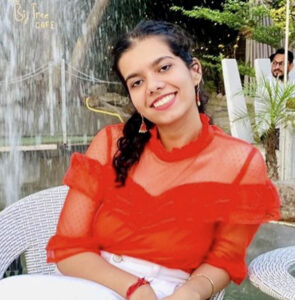
CAT Personal Interview (PI) Tips

Kritika Yadav
- Last Updated
- September 12, 2022
- 11:36 am

The CAT Personal Interview (PI) round is the next most important step after the Group Discussions/ Writing Ability Test (WAT) for getting into the IIMs and other MBA institutes, after getting short listed through CAT (Common Admission Test).
A CAT personal interview can be an intimidating experience, even if you know what to expect. With tensions flaring up, an intensely competitive environment and confused perceptions about this critical interview process, you might need all the understanding you find to get crack this part of the MBA selection process. We help you here to get a clear understanding about how B-schools accepting CAT scores conduct interviews so that you are armed and ready to face the interviewers.
Understanding the CAT Personal Interview (PI) Round
A personal interview (PI) is one of the most important components of the selection process in a B-school, and is usually kept for the last. The focus of the interview is quite broad, right from your views on life to very specific questions related to life. While some questions may appear trivial, you shouldn’t undermine their importance. On the contrary, PI is a way to gauge you both as a person and future professional in all spheres of life.
Important tips to follow in a CAT Personal Interview (PI)
Here are some useful pointers below for prepping yourself for the D Day:
- Be your natural self during the interview instead of putting on a mask and trying to be someone you are not. Interviewers are highly experienced professionals and will be able to see right through you. This will count against you even if you have scored high in the CAT.
- It always pays to prepare for an interview. This will help you feel more relaxed and give you the ability to muster up confidence.
- Always answer questions, honestly and promptly.
- Think about your greatest strength and look back at examples that highlight this strength.
- Be prepared for open-ended questions that give you an opportunity to lead the interview. A good example of an open-ended question is “Tell me something about yourself” Preparation allows you to be clear about what and how you want to convey the message during the interview.
Etiquette for Personal Interview
Understanding core components of etiquette help you hone better:
- Preparation: The most common complaint among interviewers is lack of preparation for the PI. It shows you are not organized and do not have forethought. Preparation also allows you to learn more about the school and help you come up with an answer for why you want to join this school and program.
- Refrain from Clichéd Answers: Typically, when students are asked to tell an interviewer more about themselves, they begin talking about things that are already mentioned in the application form. This is not productive and wastes both your time and the interviewer’s. Just think about it. Why would the interviewer be interested in hearing things he or she already knows? Use this opportunity to show what sets you apart from other prospective candidates.
- Stick to the Point: Don’t keep rambling to fill in the silence. Not only does it make you look foolish, you will be instantly judged as someone who is very unsure of himself. Many times interviewers don’t interrupt candidates to make them feel as though they haven’t said enough. This is just a tactic to see how well the candidate handles himself. If you think a pause becomes too long and awkward, you could just ask something like, “Would you like to know something specific about me?”
Possible Questions for a CAT Personal Interview
Here are some likely questions that you could be asked during the course of your B-school personal interview and some guidance on how to answer them.
- Question: Why have your chosen this particular institute?
Answer this question honestly. You should be clear about the criteria you have used to select the institute. It could be due to placement percentage, courses offered, location or fee. Once you know what your selection parameters are, you should let the interviewer know why you prefer this institute over the others. You can mention a few major achievements of the school that shows the interview panel that you have done some ground work.
- Question: Why MBA?
You can talk about how MBA would give a boost to your career. You can also talk about your interest in taking up managerial responsibilities at a job.
- Question: What do your think is your biggest failure?
This is not the time to talk about your failures. Rather you should play down your failure, so that it does not reflect poorly on you and your career. For instance, you could say your biggest failure is your inability to lose weight even though you have been trying for several years. Or, you could say something smart like you don’t see things as failures. Rather that you view downfalls as an opportunity to learn something and strive forward. Be sure to have an example handy because you may be asked for it.
- Question: What was the last book your read?
The choice of your book can tell a lot about you. Learn as much as you can about a specific author and the books he or she has written. Also, it is perfectly alright to say you haven’t read other books by a specific author but you like the book because of a particular reason.
- Question: Who is your role model?
Your role model can be anyone – a public figure or family member. When you mention a person, focus on the person’s qualities that inspire and motivate you. You should be able to point out why the person is different from others around him or her.
- Question: Do you have any questions?
Don’t say no, as it reflects poorly on you. This is the perfect opportunity to show your enthusiasm. So ask a few questions related to the institute’s cultural environment and also academics.
(Get more PI questions and their answers here: Frequently asked questions in PI at B-schools)
A personal interview allows an interviewer to judge how rational and balanced you are. It is best to be yourself, but preparing for the interview will give you the confidence to handle yourself and even answer unexpected questions.
Related Links
Latest News
People Reading Now

CBSE Compartment Result 2023 OUT: Click For Direct Link



CSAB 2023: Special Round Registration Begins Today

